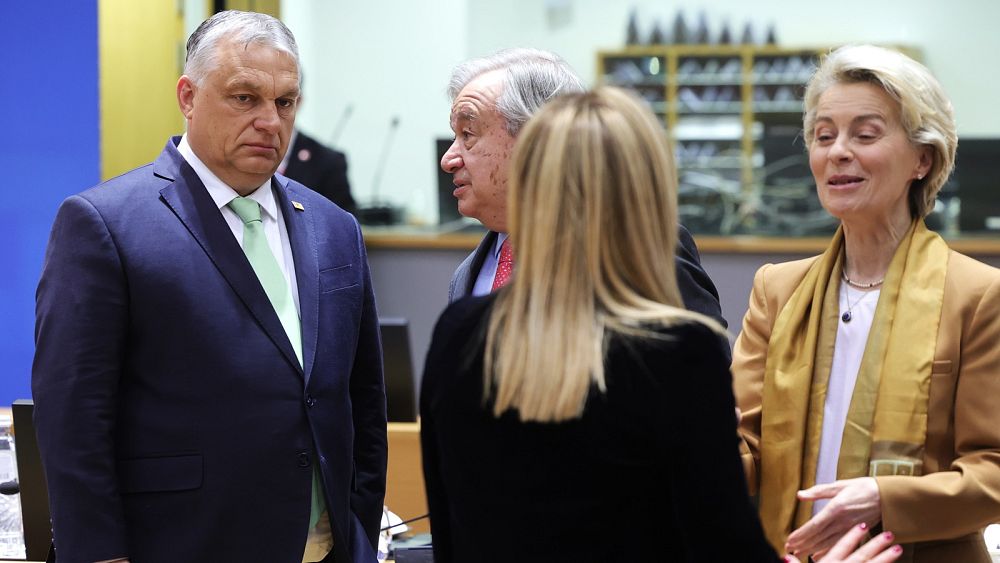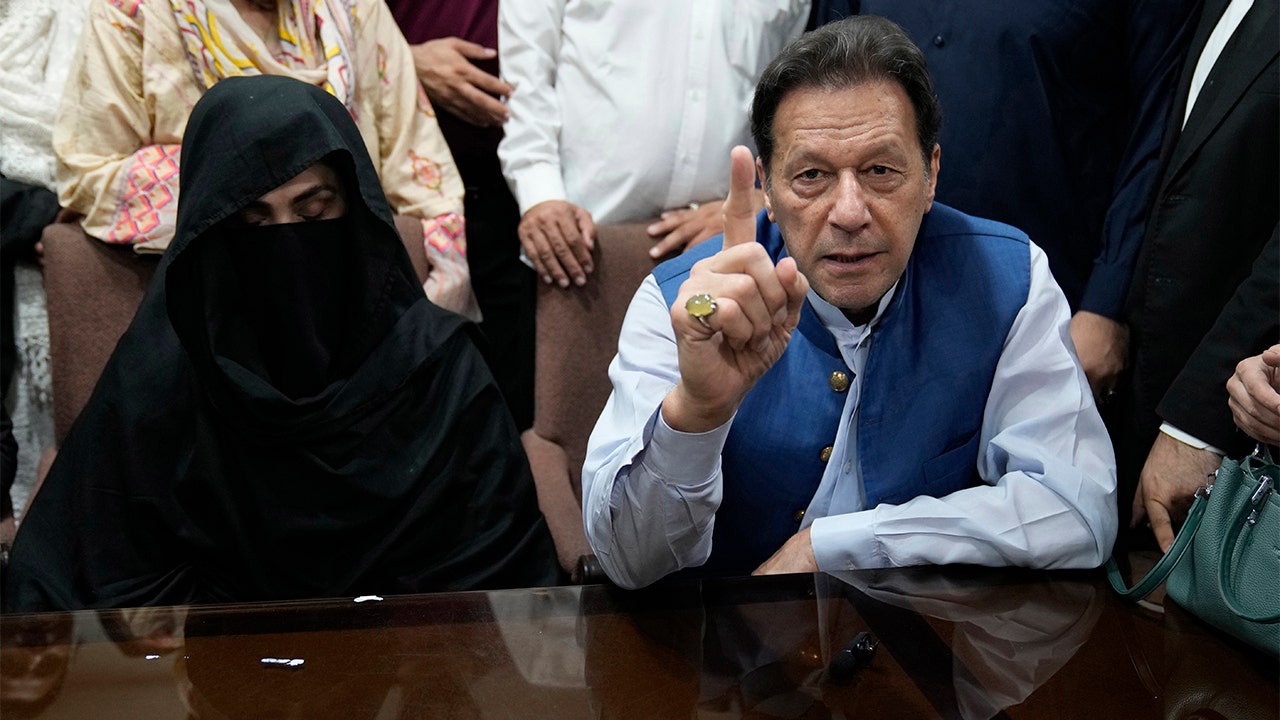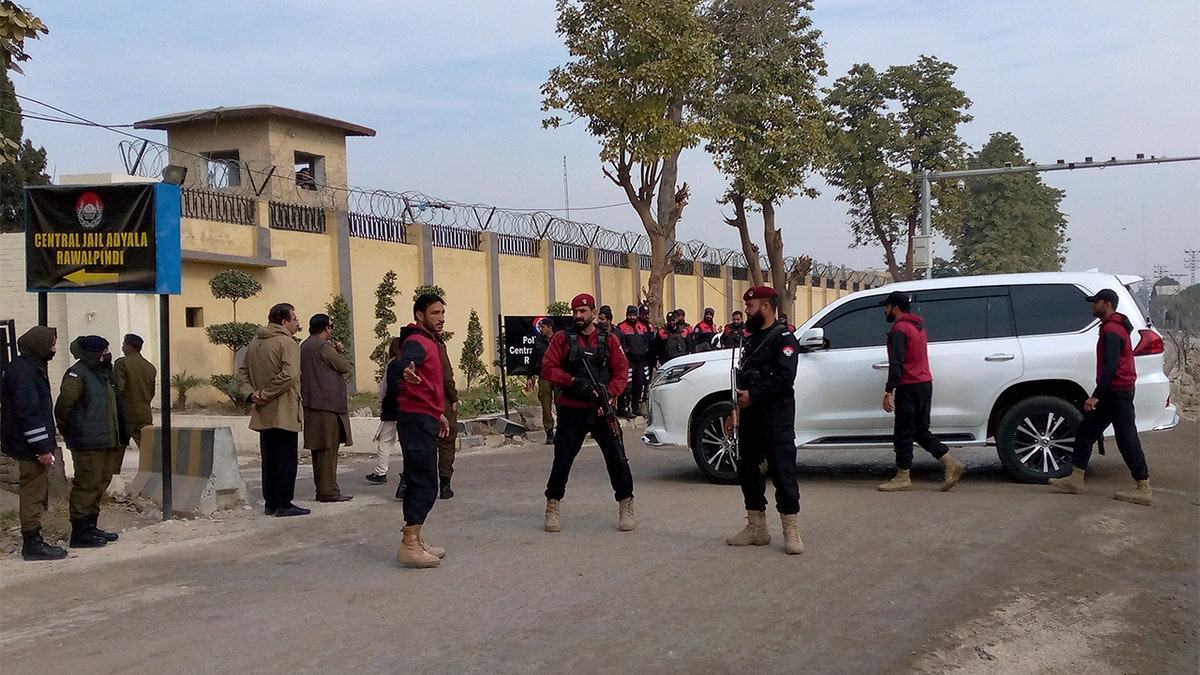World
EU chiefs hail new migration deal while Orbán calls it ‘unacceptable’

Official reactions are pouring in after home affairs ministers struck a major deal to revamp the European Union’s migration and asylum policy.
Ursula von der Leyen, who, upon becoming president of the European Commission, made the overhaul one of her top priorities, called the agreement a “huge milestone.”
“Migration is a European challenge,” von der Leyen said in a tweet. “Working together, we can achieve a common solution.”
Charles Michel, president of the European Council, an institution that has witnessed countless debates on migration over the past years, most of which were as polarising as they were fruitless, said the deal represented “truly a big step.”
Von der Leyen and Michel sent their personal congratulations to Ylva Johansson, the European Commissioner for home affairs, for her perseverance and hard work.
In her capacity, Johansson has continuously defended the need to move forward with the so-called New Pact on Migration and Asylum, a holistic proposal that she presented in September 2020 with the aim of establishing a unified, coordinated migration policy among the 27 member states.
The New Pact, which seeks to replace the ad-hoc crisis mode that is currently in place, has been the focus of intense discussions and was at times seen as a proposal condemned to failure.
But on Thursday evening, in a surprising turn of fate, home affairs ministers gathered in Luxembourg struck a provisional deal on the pact’s two main pillars: a system of mandatory solidarity to manage the arrival of asylum seekers and a common framework to streamline border procedures.
“It has been a marathon,” Johansson said.
The vote took place under the rules of qualified majority, with only two countries standing out in their opposition: Hungary and Poland.
Bulgaria, the Czech Republic, Malta, Lithuania and Slovakia abstained, diplomats with knowledge of the negotiations told Euronews.
“Forced relocation does not solve the problem of migration, but it violates the sovereignty of the member states,” Polish Prime Minister Mateusz Morawiecki said in a short tweet published on Friday morning.
“Poland will not pay for the mistakes of the immigration policies of other countries.”
His Hungarian counterpart, Viktor Orbán, echoed his criticism and denounced Brussels for “abusing” its legal powers and imposing the relocation of migrants – something that is actually not foreseen under the proposal.
“This is unacceptable, they want to forcefully turn Hungary into a migrant country,” Orbán said, according to his spokesperson.
His deputy minister of interior, Bence Rétvári, who took part in the Luxembourg discussions, expanded upon Budapest’s position, saying the reform will place a “disproportionate burden” on Hungary and encourage the arrival of new migrants.
Rétvári claimed “pro-migration governments” had pressured other member states into accepting the draft law, making a “mockery” of the EU’s decision-making process.
The European Commission insists the new system is not based on “mandatory relocation” but on “mandatory solidarity.” The reform will offer member states three options to collectively cope with situations of migration pressure:
- Accept a number of relocated asylum-seekers.
- Pay for the return of rejected applicants to their country of origin.
- Finance operational support, such as infrastructure and personnel.
The agreement reached by the EU Council foresees 30,000 relocations per year across the bloc and a €20,000 one-off payment for each rejected applicant.
“Member states have full discretion as to the type of solidarity they contribute. No member state will ever be obliged to carry out relocations,” the EU Council said in a statement explaining the outcome of Thursday’s meeting.
The deal, however, is provisional and still needs to be negotiated with the European Parliament, which has a somewhat diverging position on the matter.
“We can find a way forward,” said the parliament’s president, Roberta Metsola.
“We can protect our borders and find an approach that is fair and humane with those in need of protection, firm with those not eligible and strong against traffickers exploiting the most vulnerable.”
Tomas Tobé, the Swedish MEP who acts as a rapporteur for the solidarity mechanism, welcomed the breakthrough as “very important news” and said negotiations would start “already next week.
“Much work lies ahead,” Tobé said.
Meanwhile, Tineke Strik, a Dutch lawmaker who sits with Greens, predicted talks would be “tough” because the EU Council has chosen to “lock” asylum seekers at the external borders to avoid sharing the “responsibility.”

World
Chrystia Freeland, Justin Trudeau’s ‘Minister of Everything,’ Enters Race to Replace Him

Chrystia Freeland, Canada’s former deputy prime minister, whose sudden resignation in December helped set the stage for Prime Minister Justin Trudeau’s decision to step down, said on Friday that she was running to replace him.
She posted her announcement on X with a six-word sentence: “I’m running to fight for Canada.”
Ms. Freeland, 56, once a close ally of Mr. Trudeau who was often called his “minister of everything,” had served as deputy prime minister since 2019, and had long been viewed as a possible successor.
But the two had a bitter rift when Mr. Trudeau moved to demote her over a Zoom call in December, offering her a minister-without-portfolio role. Instead, she opted to resign and delivered a strong rebuke of Mr. Trudeau’s leadership as Canada prepares to deal with President-elect Donald J. Trump. Mr. Trump has threatened to apply a tariff on Canadian exports to the United States.
Her stinging departure destabilized Mr. Trudeau’s shaky grip on power. Three weeks later, on Jan. 6, he announced he would step down as Liberal Party leader and as prime minister once a new leader was in place.
Candidates for the leadership post will campaign ahead of a national vote among party members in March. The new Liberal Party leader will also become Prime Minister of Canada and lead the party in a general election expected to take place in the spring.
Ms. Freeland said she would officially launch her campaign in person on Sunday, which could take place in Toronto, the electoral district she represents in Parliament. She will face a stiff challenge persuading Canadians that she is the candidate best suited to take on the Conservative Party and its leader, Pierre Poilievre.
The Conservatives, who have a 25 percentage point lead over the Liberals in polls, have sought to portray Ms. Freeland as part of the problem given her once-close relationship with Mr. Trudeau and her key role in his governments since 2015, when he first became prime minister.
Mr. Trudeau’s popularity has nose dived in recent years as Canadians have become increasingly frustrated with persistently high cost-of-living on everything from housing to grocery bills.
Many Canadians have also started pushing back against the government’s immigration policy, which has resulted in 2.3 million people arriving in the country in the past two years. While the government said migrants were necessary to help fill gaps in low-skilled jobs, many Canadians say the new arrivals have contributed to rising housing costs and strains on the public health care system.
Ms. Freeland had accused Mr. Trudeau of engaging in political gimmickry after her ministry clashed with his office about a temporary sales-tax break during the end-of-year holidays.
The government estimated that the tax break, which covered items like restaurant bills and some toys and clothing, would cost about 1.6 billion Canadian dollars, or $1.1 billion, which Ms. Freeland said that Canada could “ill afford” at a time when Mr. Trump is raising the specter of tariffs.
“We need to take that threat extremely seriously,” Ms. Freeland said in her resignation letter. “That means keeping our fiscal powder dry today, so we have the reserves we may need for a coming tariff war.”
Ms. Freeland was born and raised in Alberta and is of Ukrainian ancestry. She has been a staunch supporter of Ukraine on the global stage, denouncing Russia’s invasion.
She attended Oxford University as a Rhodes Scholar, and worked as a journalist and newsroom leader at a number of news organizations, including the Financial Times and Reuters, before joining the Liberal Party in 2013. She is married to a reporter on the Culture desk of The New York Times and has three children.
During Mr. Trump’s first term, Ms. Freeland steered Canada’s renegotiation of the North American Free Trade Agreement with the United States and Mexico, portraying steely confidence during the tense talks with the odd moment of levity. (Ms. Freeland was photographed arriving in Washington in 2018 wearing a white T-shirt that read “Keep Calm and Negotiate NAFTA.”)
But she also angered Mr. Trump during the negotiations and his animosity has apparently not waned.
When Ms. Freeland resigned in December, Mr. Trump posted triumphantly: “Her behavior was totally toxic, and not at all conducive to making deals which are good for the very unhappy citizens of Canada. She will not be missed!!!”
Ms. Freeland, in an opinion piece published on Friday, hinted that Canada would retaliate in “the single largest trade blow the U.S. economy has ever endured.”
As finance minister, she spearheaded popular government programs to reduce the cost of day care for parents and to tackle childhood poverty.
Her announcement on Friday marks the second entry of a top contender in the Liberal Party leadership race. She will face off against Mark Carney, a former head of the central banks in Canada and England, who declared he was running on Thursday.
Mr. Carney is close friends with Ms. Freeland and is the godfather to one of her three children. He was being recruited by Mr. Trudeau’s team to take Ms. Freeland’s place in the government in December, but declined the job.
World
Pakistani court sentences ex-PM Imran Khan and his wife to 14 and 7 years in prison in graft case

A Pakistani court on Friday sentenced the country’s already-imprisoned former Prime Minister Imran Khan and his wife to 14 and seven years in jail after finding them guilty of corruption, officials and his lawyer said.
It’s yet another blow for the former premier who has been behind the bars since 2023.
The couple are accused of accepting a gift of land from a real estate tycoon in exchange for laundered money when Khan was in power.
Prosecutors say the businessman, Malik Riaz, was then allowed by Khan to pay fines that were imposed on him in another case from the same laundered money of 190 million British pounds ($240 million) that was returned to Pakistan by British authorities in 2022 to deposit with the national exchequer.
6 DEAD AS PROTESTS ERUPT IN PAKISTAN OVER JAILED FORMER PRIME MINISTER IMRAN KHAN
Former Prime Minister of Pakistan Imran Khan addresses the media in Lahore, Pakistan. (AP Photo/K.M. Chaudary, File)
Khan has denied wrongdoing and insisted since his arrest in 2023 that all the charges against him are a plot by rivals to keep him from returning to office.
According to Khan’s legal team, Khan laughed and his wife, Bushra Bibi, smiled when judge Nasir Javed read the verdict.
Later, Khan and Bibi were taken into custody by prison officials after the announcement of the verdict, according to officials. She had earlier served a prison sentence in another graft case until she was freed on bail by a court in October. She recently led a rally to demand her husband’s release.
Later, a post from Khan’s account on the X platform urged his supporters not to panic over the verdict, under which the al-Qadir University built by his wife’s charity will also be taken over by authorities in the Punjab province.
“I will never accept this dictatorship and I will stay in the prison cell for as long as I have to in the struggle against this dictatorship, but I will not compromise on my principles and the struggle for the true freedom of the nation,” Khan wrote. Khan’s family has said such posts are shared with his consent.
Faisal Chaudhry, a defense lawyer, said the court verdict could be challenged in the superior courts.
Shortly after the announcement of the verdict, lawmakers from Khan’s Pakistan Tehreek-e-Insaf, or PTI, party rallied outside the parliament in the capital, Islamabad, saying the former premier had been wrongly punished.
INDIA STEPS UP DIPLOMATIC RELATIONS WITH THE TALIBAN AS RIVAL PAKISTAN LOSES INFLUENCE IN AFGHANISTAN

Guards protecting a vehicle outside of a compound in Rawalpindi, Pakistan. (AP Photo/W.K. Yousufzai)
“This is a bogus case, and we will approach an appeals court against this decision,” said Omar Ayub Khan, a senior party leader who is not related to the former premier.
Imran Khan was ousted in a no-confidence vote in parliament in April 2022, had previously been convicted on charges of corruption, revealing official secrets and violating marriage laws in three separate verdicts and sentenced to 10, 14 and seven years respectively. Under Pakistani law, he is to serve the terms concurrently — meaning, the length of the longest of the sentences.
Some of Khan’s supporters were also present outside the Adiala prison in the city of Rawalpindi, and they chanted slogans against the government, demanding the release of their leader.
On Thursday, Information Minister Attaullah Tarar told reporters in Islamabad that there was “irrefutable evidence” against Khan and his wife in the “mega corruption scandal.” Tarar said that Khan even did not tell his own Cabinet members about the money that was returned to Pakistan by Britain.
Tarar also claimed that Khan built a new sprawling house in the eastern city of Lahore after giving benefits to the business tycoon, and that he was unable to prove that from where he got the money from to build it.
The latest development came a day after Khan’s PTI party held a crucial round of talks with representatives of the government of Prime Minister Shehbaz Sharif to demand the release of all political detainees, including Khan and other party leaders.
Sharif became prime minister following the February 2024 election, which PTI claims was rigged.
World
Commission claims slashing of foreign offices still under negotiation

The European Commission said that ‘reflections are ongoing’ over the downsizing of the international hubs under the department for international partnerships.
The European Commission said that ‘reflections are ongoing’ over the downsizing of the international hubs under the department for international partnerships.
Plans to slash EU international partnerships from more than four in five hubs worldwide revealed today by Euronews remain under negotiation, a Commission spokesperson said today.
Euronews reported that Directorate-General for International Partnerships (DG INTPA) presence in 100 delegations worldwide is set for reduction to 18 hubs on the basis of an internal planning document seen by this news service.
“Reflections are ongoing within the Commission and no decision has been taken [on the issue],” European Commission spokesperson for Foreign Affairs Anitta Hipper said when asked for details of the savings and staff moves that the plans entailed, declining to comment further on the document.
Hipper insisted that the EU presence on the ground in foreign offices would be maintained, and said that work is ongoing to see how effectively delegations can deliver on all EU policies, taking into account “budget realities and political priorities”.
DG INTPA is planning slashing more than four in five of its hubs worldwide – reducing from around 100 delegations to 18 hubs – according to a document seen by Euronews.
The DG will maintain 18 hubs in Africa, Asia and Latin American/Caribbean, according to the document, in strategic areas for the institution. You can see in this map where these hub offices will be located in detail:
“It is essential to move to portfolios that are more strategic and less fragmented and an optimised resource allocation across multiple countries,” the document said.
“The current INTPA operating model is based on the de-concentration process of 25 years ago, whereby INTPA staff are distributed across ‘cooperation sections’ within 100 Delegation worldwide,” the document said, adding: “This model no longer meets the needs for increased strategic focus and operation agility.”
-
/cdn.vox-cdn.com/uploads/chorus_asset/file/25822586/STK169_ZUCKERBERG_MAGA_STKS491_CVIRGINIA_A.jpg)
/cdn.vox-cdn.com/uploads/chorus_asset/file/25822586/STK169_ZUCKERBERG_MAGA_STKS491_CVIRGINIA_A.jpg) Technology1 week ago
Technology1 week agoMeta is highlighting a splintering global approach to online speech
-

 Science6 days ago
Science6 days agoMetro will offer free rides in L.A. through Sunday due to fires
-
/cdn.vox-cdn.com/uploads/chorus_asset/file/25821992/videoframe_720397.png)
/cdn.vox-cdn.com/uploads/chorus_asset/file/25821992/videoframe_720397.png) Technology1 week ago
Technology1 week agoLas Vegas police release ChatGPT logs from the suspect in the Cybertruck explosion
-

 News1 week ago
News1 week agoPhotos: Pacific Palisades Wildfire Engulfs Homes in an L.A. Neighborhood
-

 Education1 week ago
Education1 week agoFour Fraternity Members Charged After a Pledge Is Set on Fire
-

 Politics1 week ago
Politics1 week agoTrump trolls Canada again, shares map with country as part of US: 'Oh Canada!'
-
/cdn.vox-cdn.com/uploads/chorus_asset/file/23935558/acastro_STK103__01.jpg)
/cdn.vox-cdn.com/uploads/chorus_asset/file/23935558/acastro_STK103__01.jpg) Technology6 days ago
Technology6 days agoAmazon Prime will shut down its clothing try-on program
-

 News1 week ago
News1 week agoMapping the Damage From the Palisades Fire

















